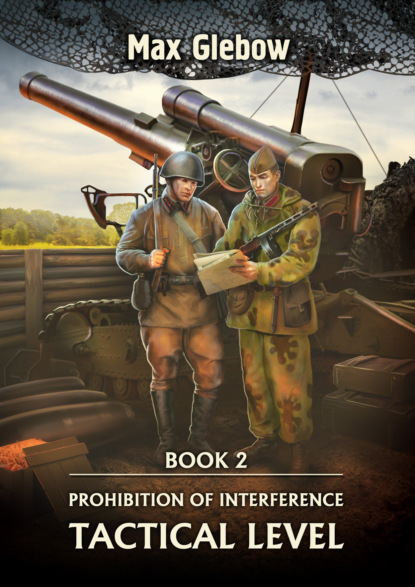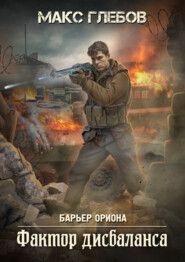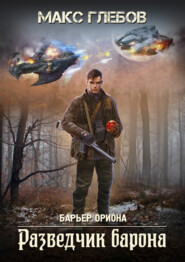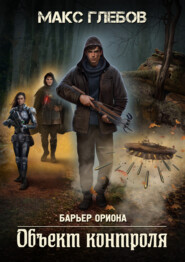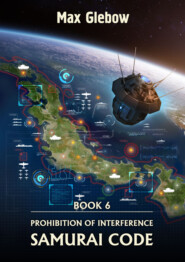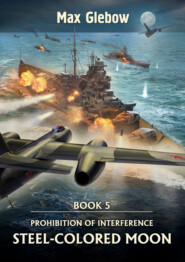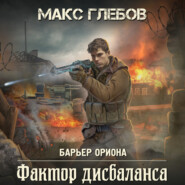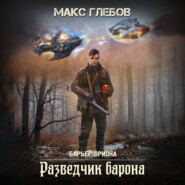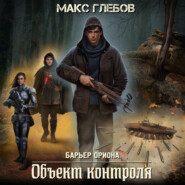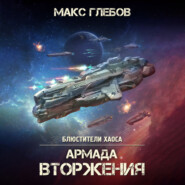По всем вопросам обращайтесь на: info@litportal.ru
(©) 2003-2025.
✖
Prohibition of Interference. Book 2. Tactical Level
Настройки чтения
Размер шрифта
Высота строк
Поля
Prohibition of Interference. Book 2. Tactical Level
Max Glebow
Prohibition of Interference #2
Junior Lieutenant Peter Nagulin escaped from the Uman pocket, but his problems only increased.
General Muzychenko, whose help he was counting on, was taken by plane to Moscow, where the NKVD was investigating the circumstances of the deaths of the two armies, and Pyotr himself falls into the focus of the NKVD's close attention.
Meanwhile, a new catastrophe is brewing on the front, in comparison with which the defeat at Uman is only a prelude.
Guderian's and Kleist's tanks seek to close a giant pincer around the troops of the Southwestern Front defending the capital of Soviet Ukraine…
Max Glebow
Prohibition of Interference. Book 2. Tactical Level
Chapter 1
The Dnieper to the north and south of Kyiv abounds with islands, and its width, even in the narrowest places, is about a kilometer. According to the leadership of the Red Army in August 1941, the river was an important factor in creating a strong defense of Kyiv.
From orbit the situation looked very sad for the Russian troops, although for the front commanders on the ground it might not have seemed so threatening. The German 6th Army began to storm the Kyiv fortified area and thoroughly cut into the Soviet defense, but the introduction of fresh divisions allowed the Red Army to restore the situation by mid-August, pushing back the enemy and unblocking the concrete fortifications, the garrisons of which had been fighting in encirclement for almost a week. This success seemed to have led Comrade Stalin and his generals to believe in the ability of Southwest Front forces to hold the capital of Soviet Ukraine, but the situation at the front changed sharply once again.
Convinced that, despite the capture of Smolensk, the German troops could not break the stubborn resistance of the Soviet forces, the Wehrmacht command considered it impossible to continue the offensive against Moscow without eliminating the threat from the flank, from the armies of the Southwest Front, which were still stubbornly defending the Kyiv bulge. On 24 August 2nd Panzer Group[1 - A Panzer Group is an operational large formation, which would more commonly be called a tank army. This term was used in the armed forces of Nazi Germany during World War II. The Panzer Group had up to a thousand tanks, combined into two or four corps. In total the Panzer Group consisted of up to five tank divisions, three or four motorized divisions, and up to six infantry divisions.] and the infantry army of Maximilian von Weichs turned south and launched an offensive to encircle the Russian forces defending Kyiv. The Soviet divisions, weakened by previous battles, could not stop the Wehrmacht tank fist, but they still launched vigorous counterstrokes from the east against the flank of Guderian's motorized units, which diverted his forces and slowed his advance to the south. Perhaps the Southwest Front could cope with 2nd Panzer Group, even supported by Weichs' infantry, and, if not win, at least not to be surrounded. Apparently, the Red Army command sincerely believed that the Germans would limit themselves to this strike, as soon as the enemy did not have an equally powerful tank group on the southern flank of Kyiv's defense. In fact, the Soviet generals again underestimated the Wehrmacht's ability to maneuver mobile formations quickly and unexpectedly.
Simultaneously with Guderian's strike, the huge masses of tanks, artillery and automobiles in German Army Group South came on the move. Satellites showed me columns of equipment from General Ewald von Kleist's Panzer Group stretching for dozens of kilometers, which were moving in forced march toward the southern face of the Kyiv bulge. Now they were still on the western bank of the Dnieper, and in order to strike from the south to meet Guderian's tanks, they needed to cross over to one of the bridgeheads previously captured by the Germans. However, judging by the amount of engineering equipment that the Germans were bringing to the river, the German troops were up to the task, although they had to use almost all the means of passage at their disposal. Such a mass of equipment required a kilometer-long pontoon bridge capable of supporting tanks.
I saw the death loop tighten around the Russian armies, but what can a junior lieutenant waiting to be assigned to a new unit in a shallow rear area do in such a situation?
The situation of Soviet and German troops at the beginning of September 1941. The blue shaded arrow is a strike by Heinz Guderian's Panzer Group, inflicted in early September. The blue dotted arrow is the planned strike from the Kremenchuk bridgehead by Ewald von Kleist's Panzer Group (in real history it took place on September 12 and led to the closure of the Kyiv pocket).
* * *
Our breakthrough from the encirclement was met by the command very ambiguously. NKVD officers from the Special Department of the Southern Front immediately took General Muzychenko and Division Commander Sokolov, and all the others who escaped the pocket were taken to the rear to be re-formed. But that doesn't mean we've been left alone. A week later I was summoned to the Special Department.
“Have a seat, Comrade Nagulin,” the battalion commissar nodded as he listened to my report, “we have a long conversation ahead of us.”
I sat silently on the stool in front of the officer's desk, and my face was full of concentration. The fact that he addressed me as 'Comrade Nagulin' made me a little uneasy, but at least it wasn't just 'Nagulin'. If, after all, I am a 'comrade', I can expect no immediate accusation of something incompatible with life and liberty just yet.
“It wasn't long ago that you were a common soldier, Comrade Nagulin, wasn't it?”
I wanted to answer, but the commissar stopped me by raising his palm.
“And you were promoted to junior lieutenant by personal order of the commander of the 6th Army already in the encirclement. It's a little unusual, don't you think?”
“Discussing the decisions of the Army Commander is beyond my authority and competence, Comrade Battalion Commissar,” I pretended not to understand what he was getting at, keeping a neutral expression on my face.
“In this you are undoubtedly right, Comrade Nagulin, but still. There is an opinion that the Army Commander was in a hurry and made this decision under the pressure of circumstances, not being able to carefully weigh the pros and cons.”
I was silent, and the Commissar watched my reaction carefully.
“Now the Special Department of the Front is conducting an investigation,” the NKVD officer told me in a confidential tone, “The 6th and 12th Armies effectively ceased to exist. I can't give you exact figures – the information is classified – but the implications are that the likelihood of treason at the top of the armies is very high.”
“Comrade…” I couldn't keep quiet about it, but the Commissar stopped me again with a hand gesture.
“I know what you want to say, Comrade Nagulin. But believe me, from the point of view of an ordinary soldier and even a platoon commander the situation looks quite different from what it looks like at the army level and, especially, at the front level. So don't be in a hurry to speak out, but listen to me for now.”
I obediently fell silent.
“In fact, no one has any complaints about the actions of your platoon and to you personally, although there are questions, but that's a topic for a separate conversation,” continued the Commissar, “Moreover, most likely, based on the results of the investigation, your new rank will be approved by order of the front commander. But that decision will depend on your answers to my questions – right answers, Comrade Nagulin. Do you understand me?”
“Yes, Comrade Battalion Commissar. Don't doubt, I understand the importance of this investigation, and my answers will be truthful, even if that truth would put me and my people in a bad light,” I continued to play the part of the not too clever, but an extremely honest fighter, who sincerely wants to help the investigation, but doesn't know how to do it.
“Very good,” the NKVD officer grimaced slightly. He obviously wanted to hear a slightly different answer, but he didn't comment on my words, “Then let's get to it. What task did Lieutenant General Muzychenko assign you?”
“Form a platoon of anti-aircraft defense to cover the 'special purpose convoy', the headquarters of the 6th Army had to leave the encirclement as part of it.”
“And you've accomplished that task,” the Commissar nodded affirmatively, “Now tell me, Comrade Nagulin, who instructed you to bring the equipment and men into your platoon as reinforcements, which turned it, in fact, into a combined company?”
So that's how it is. Comrade Battalion Commissar intends to defame General Muzychenko, and clearly does not do it on his own initiative, but on orders from above. And I really don't want to give up the General…
“The initiative came from me, Comrade Battalion Commissar. I sought to carry out the order in the best possible way. I applied for reinforcements to my immediate supervisor, Major Svirsky. I don't know how decisions were made on them further, but I got people and equipment in most cases.”
“Unfortunately, we won't be able to ask Major Svirsky anything else,” the officer of the Special Department shook his head, “he died when he broke through the German covering force near the village of Yemilovka. But I don't think that without the authorization of the Army Commander, the Major could take out reinforcements for your platoon from units that were not subordinate to him, could he?”
“I do not have this information, Comrade Battalion Commissar.”
“And think about it, Comrade Nagulin,” grinned the NKVD officer, “the regulations do not forbid it. Try to take a broader view of the situation, by going beyond the task in front of you. You are a junior commander, and your actions are quite understandable to me. You have an order, and as you yourself said, you are striving to carry it out in the best way possible, for which purpose you ask for anti-aircraft guns in your platoon, an armored car, trucks and a DShK machine gun. If you look at it from the platoon commander's point of view, it's reasonable and the right thing to do. Now let's look at these actions from a different perspective. The army is preparing to break through the encirclement. There is little serviceable equipment, ammunition and fuel left, but all the best is taken from the units to form a staff column. As a result, we get a mechanized battalion, overstaffed with equipment, generously supplied with fuel and ammunition. And on the other side of the scale is the enormous mass of troops left without the essentials of warfare. Even the breakout groups are less well supplied, although the staff column follows their backs.
And what was the result? And the result, Comrade Nagulin, is that of the whole army entrusted by the Motherland to Lieutenant General Muzychenko, only one battalion with the commander at the head breaks out of the pocket, and the whole 6th Army remains in the pocket without the means to continue effective resistance, and only scattered groups and solitary Red Army soldiers and commanders come out to our troops. Do you know how many people besides your battalion were able to get out of the pocket?”
“I can't know that, Comrade Battalion Commissar.”
“And I know! And this knowledge makes me very unhappy, Comrade Nagulin, and makes me wonder who is to blame for what happened.”
I could not deny the NKVD officer his logic. The thing is that explicitly blaming it all on Muzychenko was also wrong. To begin with, instead of holding Pervomaisk with all its forces, the 18th Army withdrew to the south, and the leadership of the Southern Front did not even warn the encircled troops about it. Not to mention the fact that at the most critical moments the armies in the pocket not only had no air support, but did not even receive any orders from the front commander.
The Commissar interpreted my silence in his own way.
“I see that you are beginning to understand the situation, Comrade Nagulin,” he said with satisfaction, “So you confirm that you received an order from Lieutenant General Muzychenko to form a reinforced air defense platoon without regard for the loss of combat effectiveness of the units from which equipment and ammunition will be removed for your unit?”
“I was not ordered to assess the combat effectiveness of the units from which the equipment was removed,” it was no longer possible to keep silent, “I didn't even know where it came from. Major Svirsky was in charge of these matters.”
“But you're not a stupid man, Nagulin,” the NKVD officer shook his head, holding back his irritation, “and you should have understood, that it was impossible to take equipment away from the units without reducing their combat effectiveness.”
The Commissar was actively pushing me to testify against Muzychenko. Of course, the junior lieutenant's words alone could not play a decisive role, but in combination with other 'facts' they were quite capable of 'drowning' the Army Commander. Well, forgive me, comrade Svirsky, who died in battle, I will have to use your name to protect General Muzychenko. Otherwise I have no way to explain how I got the information I received from the satellites as a result of the radio intercepts of talks between Muzychenko and Ponedelin.
“It's not a lieutenant's question, Comrade Battalion Commissar,” I answered after a short pause, “Nevertheless, Major Svirsky deemed it possible to briefly explain to me the reason for gathering the surviving equipment in the staff column.”
“That's very interesting, Comrade Nagulin,” the NKVD officer even leaned forward in his chair, “And what did your immediate superior tell you?”
Max Glebow
Prohibition of Interference #2
Junior Lieutenant Peter Nagulin escaped from the Uman pocket, but his problems only increased.
General Muzychenko, whose help he was counting on, was taken by plane to Moscow, where the NKVD was investigating the circumstances of the deaths of the two armies, and Pyotr himself falls into the focus of the NKVD's close attention.
Meanwhile, a new catastrophe is brewing on the front, in comparison with which the defeat at Uman is only a prelude.
Guderian's and Kleist's tanks seek to close a giant pincer around the troops of the Southwestern Front defending the capital of Soviet Ukraine…
Max Glebow
Prohibition of Interference. Book 2. Tactical Level
Chapter 1
The Dnieper to the north and south of Kyiv abounds with islands, and its width, even in the narrowest places, is about a kilometer. According to the leadership of the Red Army in August 1941, the river was an important factor in creating a strong defense of Kyiv.
From orbit the situation looked very sad for the Russian troops, although for the front commanders on the ground it might not have seemed so threatening. The German 6th Army began to storm the Kyiv fortified area and thoroughly cut into the Soviet defense, but the introduction of fresh divisions allowed the Red Army to restore the situation by mid-August, pushing back the enemy and unblocking the concrete fortifications, the garrisons of which had been fighting in encirclement for almost a week. This success seemed to have led Comrade Stalin and his generals to believe in the ability of Southwest Front forces to hold the capital of Soviet Ukraine, but the situation at the front changed sharply once again.
Convinced that, despite the capture of Smolensk, the German troops could not break the stubborn resistance of the Soviet forces, the Wehrmacht command considered it impossible to continue the offensive against Moscow without eliminating the threat from the flank, from the armies of the Southwest Front, which were still stubbornly defending the Kyiv bulge. On 24 August 2nd Panzer Group[1 - A Panzer Group is an operational large formation, which would more commonly be called a tank army. This term was used in the armed forces of Nazi Germany during World War II. The Panzer Group had up to a thousand tanks, combined into two or four corps. In total the Panzer Group consisted of up to five tank divisions, three or four motorized divisions, and up to six infantry divisions.] and the infantry army of Maximilian von Weichs turned south and launched an offensive to encircle the Russian forces defending Kyiv. The Soviet divisions, weakened by previous battles, could not stop the Wehrmacht tank fist, but they still launched vigorous counterstrokes from the east against the flank of Guderian's motorized units, which diverted his forces and slowed his advance to the south. Perhaps the Southwest Front could cope with 2nd Panzer Group, even supported by Weichs' infantry, and, if not win, at least not to be surrounded. Apparently, the Red Army command sincerely believed that the Germans would limit themselves to this strike, as soon as the enemy did not have an equally powerful tank group on the southern flank of Kyiv's defense. In fact, the Soviet generals again underestimated the Wehrmacht's ability to maneuver mobile formations quickly and unexpectedly.
Simultaneously with Guderian's strike, the huge masses of tanks, artillery and automobiles in German Army Group South came on the move. Satellites showed me columns of equipment from General Ewald von Kleist's Panzer Group stretching for dozens of kilometers, which were moving in forced march toward the southern face of the Kyiv bulge. Now they were still on the western bank of the Dnieper, and in order to strike from the south to meet Guderian's tanks, they needed to cross over to one of the bridgeheads previously captured by the Germans. However, judging by the amount of engineering equipment that the Germans were bringing to the river, the German troops were up to the task, although they had to use almost all the means of passage at their disposal. Such a mass of equipment required a kilometer-long pontoon bridge capable of supporting tanks.
I saw the death loop tighten around the Russian armies, but what can a junior lieutenant waiting to be assigned to a new unit in a shallow rear area do in such a situation?
The situation of Soviet and German troops at the beginning of September 1941. The blue shaded arrow is a strike by Heinz Guderian's Panzer Group, inflicted in early September. The blue dotted arrow is the planned strike from the Kremenchuk bridgehead by Ewald von Kleist's Panzer Group (in real history it took place on September 12 and led to the closure of the Kyiv pocket).
* * *
Our breakthrough from the encirclement was met by the command very ambiguously. NKVD officers from the Special Department of the Southern Front immediately took General Muzychenko and Division Commander Sokolov, and all the others who escaped the pocket were taken to the rear to be re-formed. But that doesn't mean we've been left alone. A week later I was summoned to the Special Department.
“Have a seat, Comrade Nagulin,” the battalion commissar nodded as he listened to my report, “we have a long conversation ahead of us.”
I sat silently on the stool in front of the officer's desk, and my face was full of concentration. The fact that he addressed me as 'Comrade Nagulin' made me a little uneasy, but at least it wasn't just 'Nagulin'. If, after all, I am a 'comrade', I can expect no immediate accusation of something incompatible with life and liberty just yet.
“It wasn't long ago that you were a common soldier, Comrade Nagulin, wasn't it?”
I wanted to answer, but the commissar stopped me by raising his palm.
“And you were promoted to junior lieutenant by personal order of the commander of the 6th Army already in the encirclement. It's a little unusual, don't you think?”
“Discussing the decisions of the Army Commander is beyond my authority and competence, Comrade Battalion Commissar,” I pretended not to understand what he was getting at, keeping a neutral expression on my face.
“In this you are undoubtedly right, Comrade Nagulin, but still. There is an opinion that the Army Commander was in a hurry and made this decision under the pressure of circumstances, not being able to carefully weigh the pros and cons.”
I was silent, and the Commissar watched my reaction carefully.
“Now the Special Department of the Front is conducting an investigation,” the NKVD officer told me in a confidential tone, “The 6th and 12th Armies effectively ceased to exist. I can't give you exact figures – the information is classified – but the implications are that the likelihood of treason at the top of the armies is very high.”
“Comrade…” I couldn't keep quiet about it, but the Commissar stopped me again with a hand gesture.
“I know what you want to say, Comrade Nagulin. But believe me, from the point of view of an ordinary soldier and even a platoon commander the situation looks quite different from what it looks like at the army level and, especially, at the front level. So don't be in a hurry to speak out, but listen to me for now.”
I obediently fell silent.
“In fact, no one has any complaints about the actions of your platoon and to you personally, although there are questions, but that's a topic for a separate conversation,” continued the Commissar, “Moreover, most likely, based on the results of the investigation, your new rank will be approved by order of the front commander. But that decision will depend on your answers to my questions – right answers, Comrade Nagulin. Do you understand me?”
“Yes, Comrade Battalion Commissar. Don't doubt, I understand the importance of this investigation, and my answers will be truthful, even if that truth would put me and my people in a bad light,” I continued to play the part of the not too clever, but an extremely honest fighter, who sincerely wants to help the investigation, but doesn't know how to do it.
“Very good,” the NKVD officer grimaced slightly. He obviously wanted to hear a slightly different answer, but he didn't comment on my words, “Then let's get to it. What task did Lieutenant General Muzychenko assign you?”
“Form a platoon of anti-aircraft defense to cover the 'special purpose convoy', the headquarters of the 6th Army had to leave the encirclement as part of it.”
“And you've accomplished that task,” the Commissar nodded affirmatively, “Now tell me, Comrade Nagulin, who instructed you to bring the equipment and men into your platoon as reinforcements, which turned it, in fact, into a combined company?”
So that's how it is. Comrade Battalion Commissar intends to defame General Muzychenko, and clearly does not do it on his own initiative, but on orders from above. And I really don't want to give up the General…
“The initiative came from me, Comrade Battalion Commissar. I sought to carry out the order in the best possible way. I applied for reinforcements to my immediate supervisor, Major Svirsky. I don't know how decisions were made on them further, but I got people and equipment in most cases.”
“Unfortunately, we won't be able to ask Major Svirsky anything else,” the officer of the Special Department shook his head, “he died when he broke through the German covering force near the village of Yemilovka. But I don't think that without the authorization of the Army Commander, the Major could take out reinforcements for your platoon from units that were not subordinate to him, could he?”
“I do not have this information, Comrade Battalion Commissar.”
“And think about it, Comrade Nagulin,” grinned the NKVD officer, “the regulations do not forbid it. Try to take a broader view of the situation, by going beyond the task in front of you. You are a junior commander, and your actions are quite understandable to me. You have an order, and as you yourself said, you are striving to carry it out in the best way possible, for which purpose you ask for anti-aircraft guns in your platoon, an armored car, trucks and a DShK machine gun. If you look at it from the platoon commander's point of view, it's reasonable and the right thing to do. Now let's look at these actions from a different perspective. The army is preparing to break through the encirclement. There is little serviceable equipment, ammunition and fuel left, but all the best is taken from the units to form a staff column. As a result, we get a mechanized battalion, overstaffed with equipment, generously supplied with fuel and ammunition. And on the other side of the scale is the enormous mass of troops left without the essentials of warfare. Even the breakout groups are less well supplied, although the staff column follows their backs.
And what was the result? And the result, Comrade Nagulin, is that of the whole army entrusted by the Motherland to Lieutenant General Muzychenko, only one battalion with the commander at the head breaks out of the pocket, and the whole 6th Army remains in the pocket without the means to continue effective resistance, and only scattered groups and solitary Red Army soldiers and commanders come out to our troops. Do you know how many people besides your battalion were able to get out of the pocket?”
“I can't know that, Comrade Battalion Commissar.”
“And I know! And this knowledge makes me very unhappy, Comrade Nagulin, and makes me wonder who is to blame for what happened.”
I could not deny the NKVD officer his logic. The thing is that explicitly blaming it all on Muzychenko was also wrong. To begin with, instead of holding Pervomaisk with all its forces, the 18th Army withdrew to the south, and the leadership of the Southern Front did not even warn the encircled troops about it. Not to mention the fact that at the most critical moments the armies in the pocket not only had no air support, but did not even receive any orders from the front commander.
The Commissar interpreted my silence in his own way.
“I see that you are beginning to understand the situation, Comrade Nagulin,” he said with satisfaction, “So you confirm that you received an order from Lieutenant General Muzychenko to form a reinforced air defense platoon without regard for the loss of combat effectiveness of the units from which equipment and ammunition will be removed for your unit?”
“I was not ordered to assess the combat effectiveness of the units from which the equipment was removed,” it was no longer possible to keep silent, “I didn't even know where it came from. Major Svirsky was in charge of these matters.”
“But you're not a stupid man, Nagulin,” the NKVD officer shook his head, holding back his irritation, “and you should have understood, that it was impossible to take equipment away from the units without reducing their combat effectiveness.”
The Commissar was actively pushing me to testify against Muzychenko. Of course, the junior lieutenant's words alone could not play a decisive role, but in combination with other 'facts' they were quite capable of 'drowning' the Army Commander. Well, forgive me, comrade Svirsky, who died in battle, I will have to use your name to protect General Muzychenko. Otherwise I have no way to explain how I got the information I received from the satellites as a result of the radio intercepts of talks between Muzychenko and Ponedelin.
“It's not a lieutenant's question, Comrade Battalion Commissar,” I answered after a short pause, “Nevertheless, Major Svirsky deemed it possible to briefly explain to me the reason for gathering the surviving equipment in the staff column.”
“That's very interesting, Comrade Nagulin,” the NKVD officer even leaned forward in his chair, “And what did your immediate superior tell you?”





